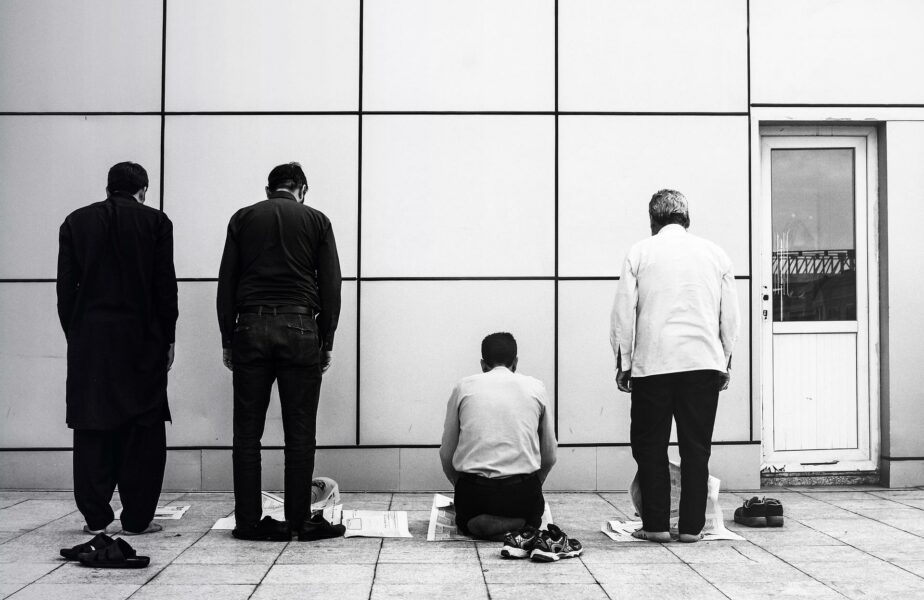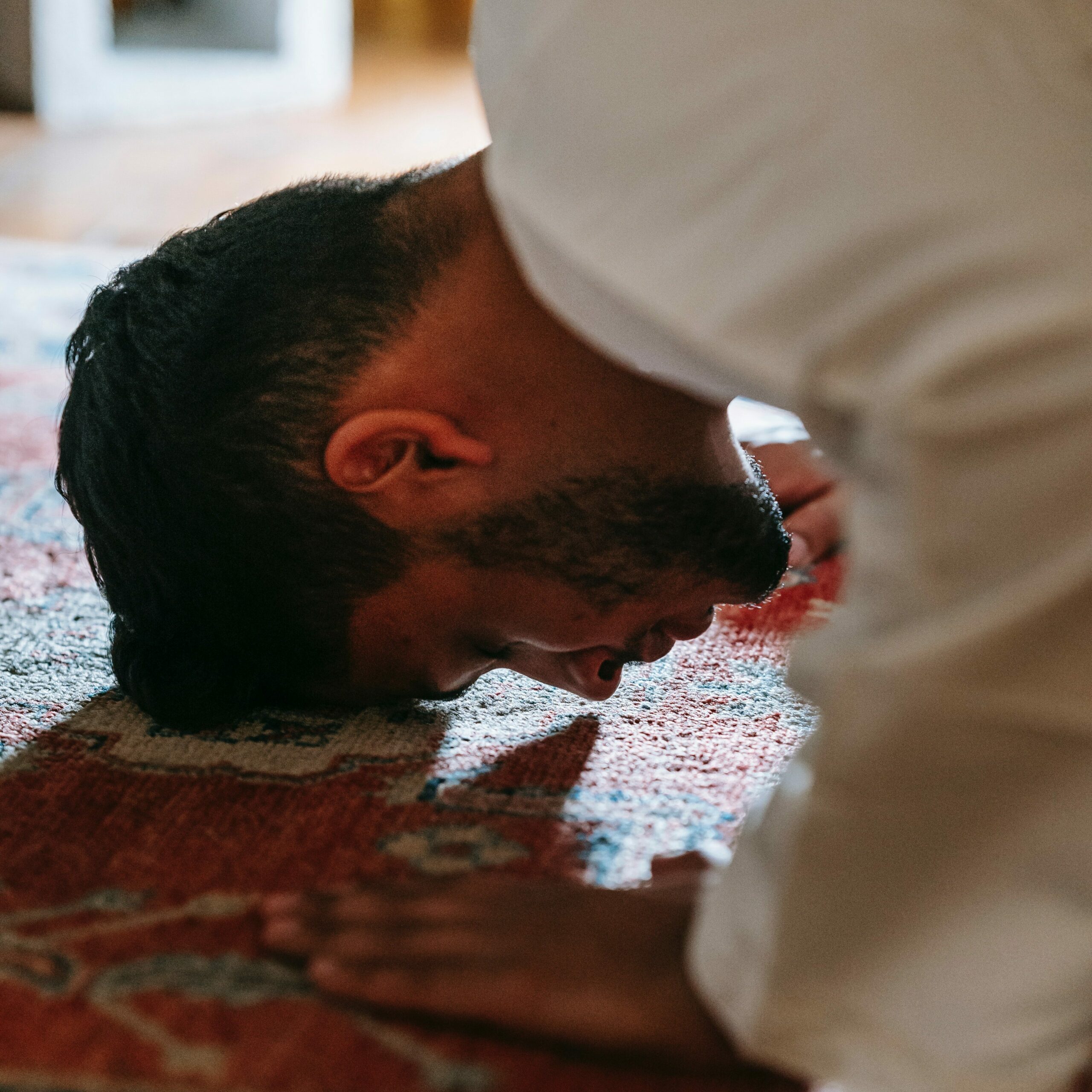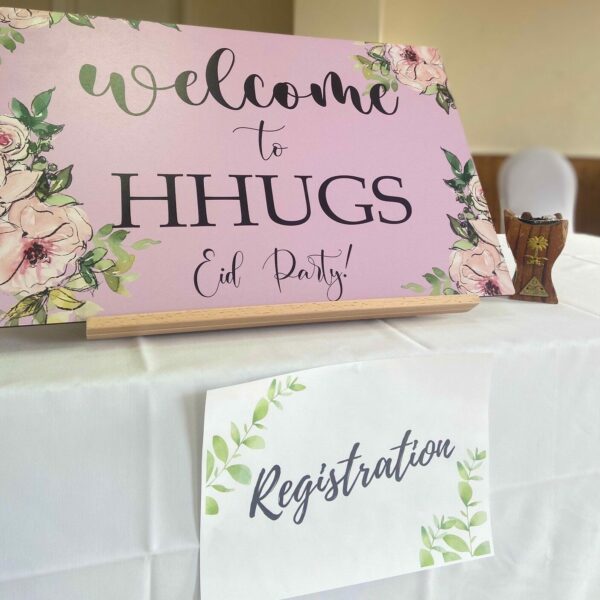Mental Health Awareness Week
Yesterday marked the start of Mental Health Awareness Week, whose theme, this year, is loneliness. Although loneliness is not necessarily a mental health problem, the feeling of extended loneliness can have an impact on your mental health. Conversely, struggling with your mental health can cause you to feel lonely due to the stigma attached.

There is a difference between being alone, and feeling lonely. Loneliness doesn’t always mean being by yourself, without anyone to talk to or interact with. You can feel lonely even if you’re in a room full of people, surrounded by noise and laughter; whilst equally, you can feel content and happy in a room by yourself. There are many causes of loneliness and the feeling can differ from person to person.
There are many reasons as to why you may experience loneliness. It could be caused by a life event, such as bereavement, job loss, a divorce or financial struggles. In the last few years, due to the pandemic, there has been a loneliness epidemic. Due to the restrictions, many people were separated from their loved ones, unable to visit friends, or attend the workplace. There was less social interaction, and for weeks and months on end, we were unsure of when the restrictions would ease.
“Levels of loneliness in Great Britain have increased since Spring 2020. Between 3 April and 3 May 2020, 5.0% of people (about 2.6 million adults) said that they felt lonely “often” or “always”.”
Tips and tricks
There are many ways of tackling loneliness, from reaching out to people, to starting new hobbies. You can find a tips on how to manage loneliness here.
We can also find ways to cope with loneliness through the guidance in the Qur’an and Prophetic Sunnah. We have prepared for you: 7 Islamic Insights on how to manage loneliness.
1. Visit others, seeking Paradise & His Pleasure
Extended periods of little or no social contact can lead to a feeling of loneliness. When you are consumed by feelings of loneliness, it can be easy to withdraw deeper into yourself and feel even more reluctant to speak to people.
As busy as our lives get, it can be difficult to check in on others regularly, and make time to visit your brothers or sisters. However, it is highly encouraged in our faith to visit others. By following this recommendation, you will also be increasing your social contact, and naturally reducing the feeling of loneliness. Reaching out to others, be it family, old friends or new, or keeping in touch with your neighbours, is one of the best ways to overcome loneliness. Also you may be unaware of the profound impact you can have simply by checking in on someone.
The Prophet (saw) said, “No Muslim servant visits his brother for the sake of Allah but that a caller from the heavens announces: You are purified and Paradise is purified for you! Otherwise, Allah says in the realms of His throne: My servant has visited Me and his guest for My Sake, so I am not pleased for him to have any reward other than Paradise.” (Musnad al-Bazzār)
If you’re not able to physically visit someone, still try to reach out to people by connecting with them online or by phone.
2. Love, and express love for His Sake.
You get a warm, feel-good feeling when you gift, when you make someone smile, and make them feel loved. The feeling of loneliness can be tackled by working together to make others feel less lonely, special and loved. The teachings of Islam encourage saying a kind word, giving a smile or a greeting, gifting or even telling someone you love them for the sake of Allah.
The Prophet (saw) said: “If any of you loves his brother, then he should inform him”. (At-Tirmidhi)
When we hear comforting or positive words, we usually feel a wave of warmth radiating through us. Something seemingly as small as the affection we feel in our hearts for others, for His Sake, has an immense reward.

The Prophet (saw) said that Allah will ask on this day: “Where are those who loved each other for the sake of My Glory? Today, on a day when there is no shade but Mine, I shall shade them with My shade.” (Muslim)
3. Attend congregational prayer
We are encouraged to attend the mosque as much as possible for congregational prayer. For men, some scholars consider the congregational prayer obligatory; for others, it is a very strongly recommended Sunnah.
The Prophet (saw) said: “Salah in congregation is twenty-seven times more meritorious than a Salah performed individually.” (Bukhari and Muslim).

One of the additional benefits is that it helps alleviate loneliness as you get out the house, and meet others on a regular basis – potentially up to five times a day. You also feel a sense of belonging and togetherness when you pray in congregation. For those living alone, away from family or with no Muslim family at all, it can be particularly comforting. The mosque can also be the hub of so many other beneficial gatherings that can boost your mood and connect you with others, from circles of knowledge, to coffee mornings or sports activities.
4. Greet one another
The beauty of Islam is such that you are connected to millions of others due to a shared belief in the one true message. Strangers become brothers, and brothers become good friends due to the love for His Sake. We are encouraged to greet one another with Salam when we meet, in passing on the street and at the Masjid. There is only goodness to be able to greet each other with a message of peace, safety and security, and it is a regarded as a charity and your sins are forgiven!

The Prophet (saw) said: “You will not enter paradise until you believe, and you will not believe until you love one another: ‘Spread salaam’ (the greeting of peace) among you.” (Muslim)
“When two Muslims meet (give salaam), and shake hands, they are forgiven their sins before they part (with each other).” (Abu Dawud)
5. Get involved with helping others
When you connect with others, uplift them and help ease their distress, you essentially are also assisting yourself. If you are focusing on helping others, you will shift the focus away from your own pain and troubles. You also rewarded to helping others, and easing their distress.
“Whoever relieves a believer’s distress of the distressful aspects of this world, Allah will rescue him from a difficulty of the difficulties of the Hereafter… Allah is helping the servant as long as the servant is helping his brother.” (Muslim)
Simply by lending an ear, or being a shoulder to cry on can help lift a huge burden for someone else. A little kindness can really go along away, and often you may not know the plight of someone, until you truly take some time to get to know them.
Helping others also increases your social contact, and is a distraction from ruminating on your own personal thoughts and feelings. You can also help volunteer in your local community to really gift your time and make a real change.
We are also encouraged to visit the sick, and the elderly and there is great reward for doing so. You will also feel a sense of accomplishment and gratitude for health, and for bringing a smile to someone’s face.
The Prophet (saw) said, ‘Whoever visits a sick person (for the pleasure of Allah), a caller from the skies announces: You are indeed blessed and your walking is blessed and you have (by this noble act) built yourself a home in Paradise.” (Sunan Ibn Majah).
6. Find solace in the Best Company
It can be difficult to open up, even to those closest to us, or to express in in words how you are feeling. Not being able to fully express yourself can be further exacerbate your feeling of loneliness as you feel misunderstood and alone. There is no greater communication than with your Lord, He is able to understand you and know whatever you are going through, without you even muttering a word or shedding a tear.

We are never truly alone. Allah (swt) is always with us. He is closer to us than our jugular vein (Quran 50:16). There is no greater time to be closer to Him, than when you need comfort and recognition. He has the power to change your heart, to uplift you and make your heart brim. When you are feeling low and isolated, call out to Him. Connect through prayer, remembrance and supplication, and study His Names and Attributes to increase your closeness to Him.
“As for the world of emotions and feelings, then the single believer has, in his belief, a close friend and companion that relieves the feeling of strangeness.” (Dr. Muhammad Ahmad ar-Rashid)
We can also take comfort in the fact that the best of creation, the Prophets (as) and many of the righteous before us were often alone and isolated from their communities. By following their example, they remain our companions on this path.
“Every time you feel disheartened by your being alone on this path, then look to those who came before you and strive to catch up with them.” (Ibn al-Qayyim)
7. Keep busy
Being idle can further exacerbate the feeling of loneliness. Preoccupying yourself with something productive can help keep you from lonely feelings. There are many ways to keep busy by trying out new hobbies, staying active, helping others or even gifting some time to volunteer.
You can also keep busy and benefit spiritually. Spend time in your local mosque and get involved with any activities or events that may be going on. You can also congregate with others to learn more Islam and the Qur’an, and enjoy thought-provoking discussions, an act filled with countless blessings:
“No people gather together in one of the Houses of Allah, reciting the Book of Allah and studying it among themselves, except that tranquillity descends upon them, and mercy envelops them, and the angels surround them, and Allah mentions them amongst those who are with Him.” (an-Nawawi)

The lonely Muslims among us
Some of us may feel intense loneliness, for others, it may be fleeting. However, we may overlook the fact that there are families right here in the UK, on our very streets, and in our cities, that have been suffering from loneliness and isolation for years on end – long before COVID-19 and its lockdowns. The pandemic only further exacerbated these feelings and led to the decline of the mental health of single mothers and fatherless children. There are elderly parents who looked forward to spending their retirement with their children and grandchildren that are separated from them, and left to survive alone.
At times when the Ummah is united, and celebrating, such as Eid, these families are further reminded of how they are cast out, shunned and abandoned by their loved ones, and local community.
“Whilst the Ummah gets excited with Eid preparation, it just reminds us of one more Eid, one more Ramadhan and one more year without our father.”
For such families, there is little respite, but the support and community they have found in HHUGS has brought them some relief.
“Eid was empty without my husband. These occasions are supposed to be spent with your loved ones so it was difficult to enjoy it without him; but HHUGS made it easier. I was so grateful to them for their generosity.”
Let’s make it one to remember!
For many, the HHUGS Eid parties are the only occasion where they feel welcomed, invited and not judged. A space where their children, often bullied in the playground and isolated at school, can meet others whom are in similar situations, for once be children again and enjoy the celebration of Eid.
“My wife and kids made new friends and got to meet new and old ones, it was a blast.”
“(It was) lovely to get to meet other people who understand and (have) been through similar circumstances.”
“I had a good time, it was really fun, I enjoyed the company. I haven’t left the house in two and a half years.”
This year, once again we are throwing Eid parties to remember, to remind these families that they are not alone, and to reduce their feelings of loneliness. We want to make it a day to remember, so that they have memories to hold onto when times are tough.

Reach out for help
If you are experiencing feelings of loneliness that are more debilitating and consuming, reach out for help to your local GP for help, or organisations that can assist you with talking therapy or ways to help reduce your loneliness. Loneliness can often be linked to depression so it’s important to keep a note of your symptoms, or of those around you so you are able to seek the help you need. You can find opening hours, and contact details here.